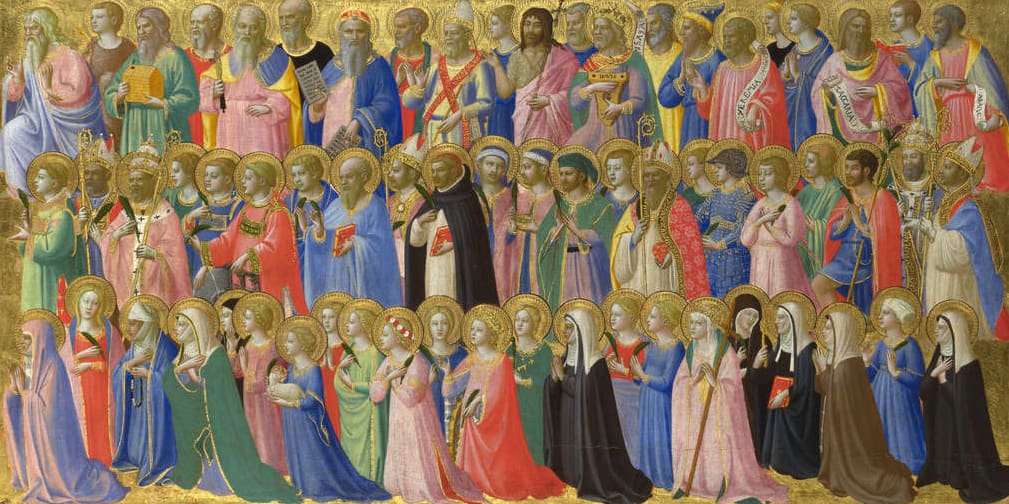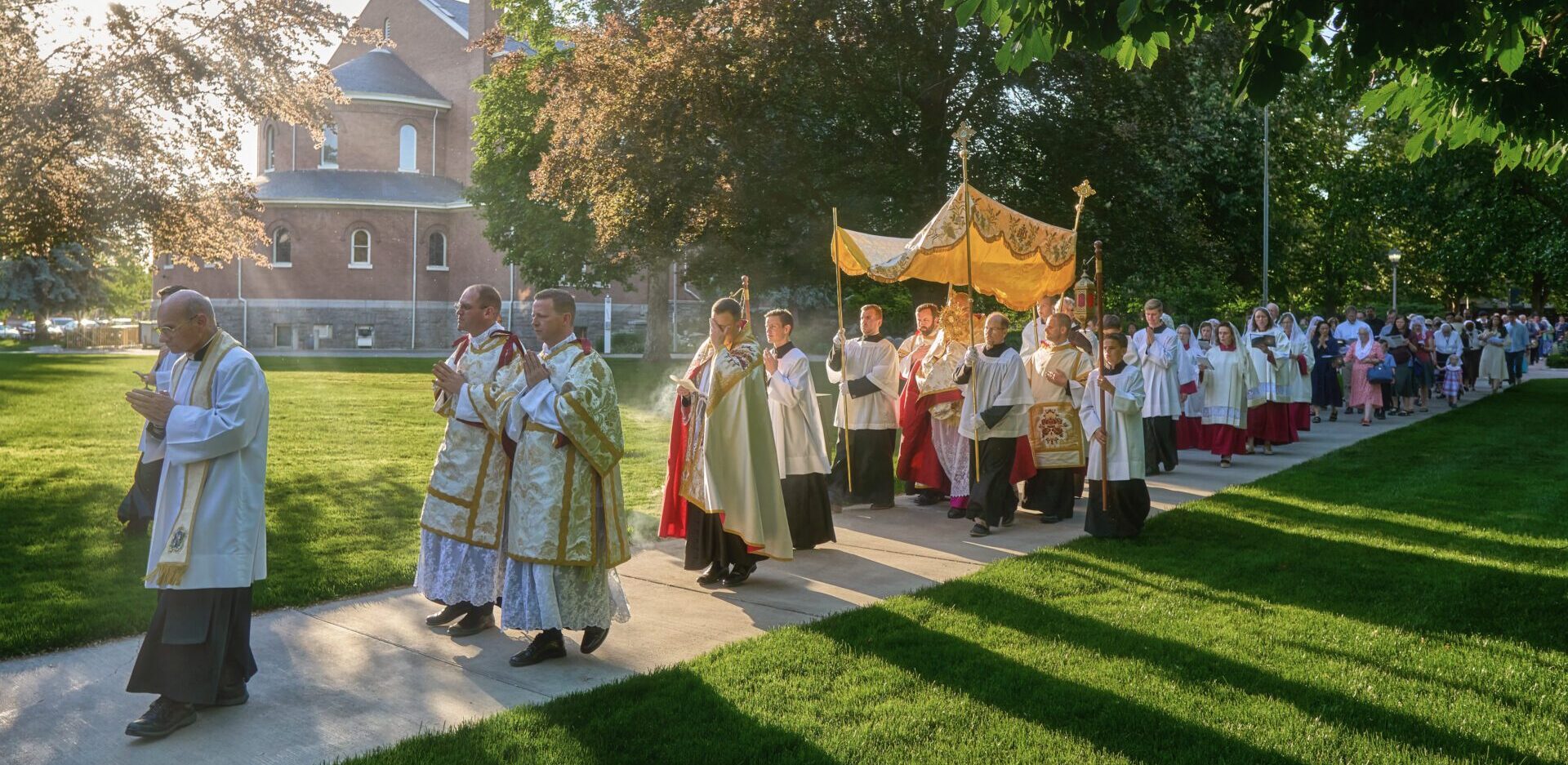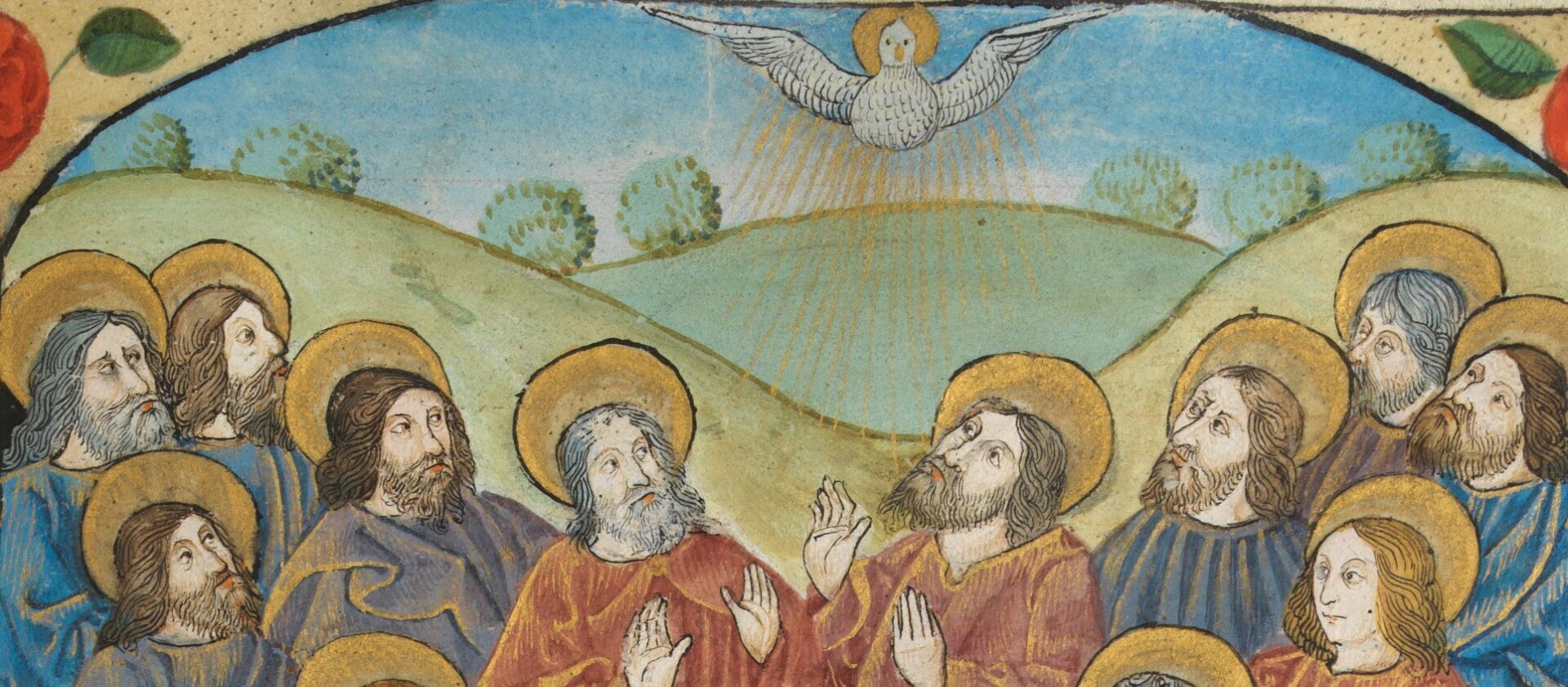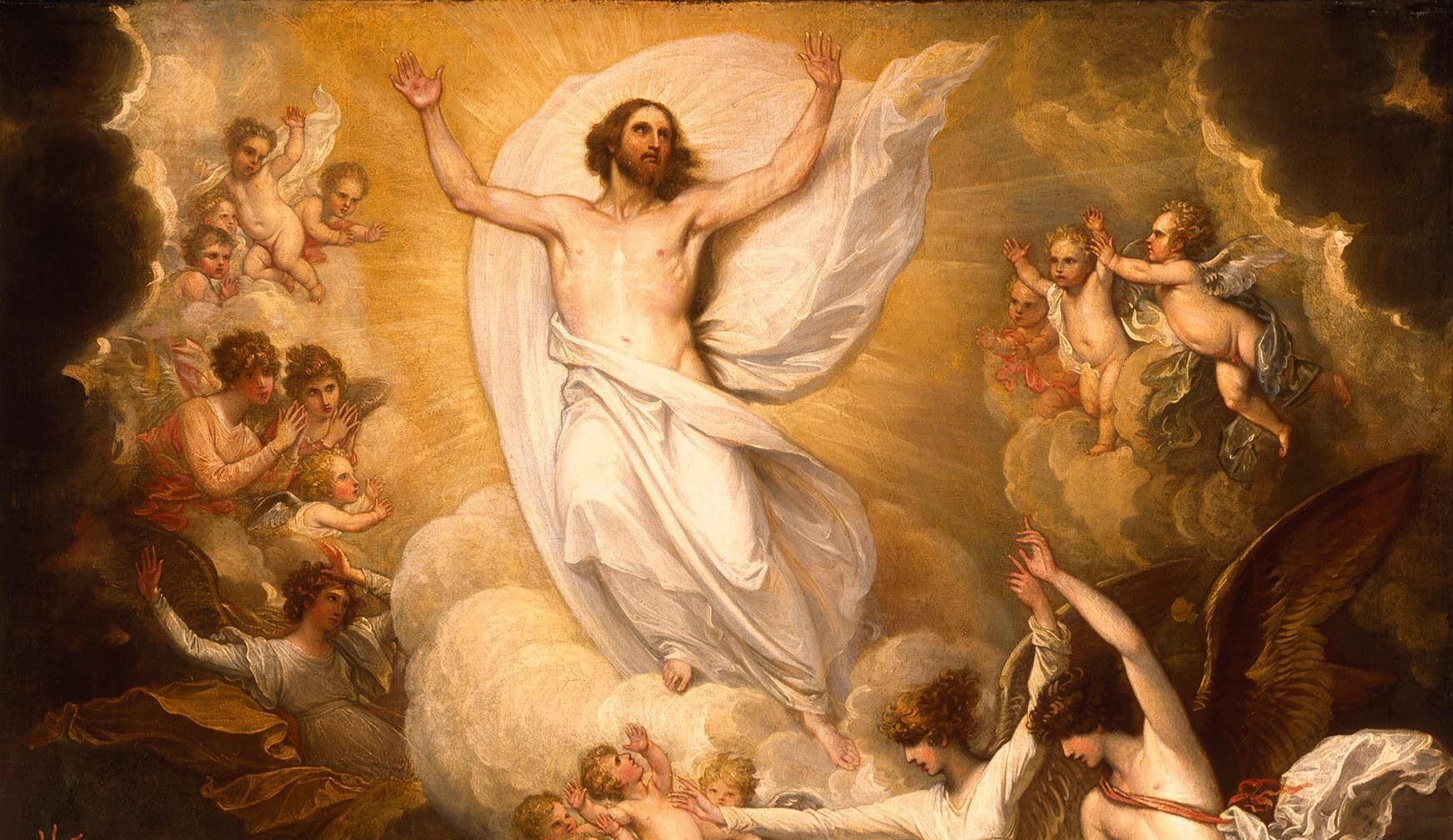Who celebrates the liturgy?
When I first read this question in the Catechism of the Catholic Church (1136), I thought the answer an obvious one: the priest, the ministers, and the people gathered in the church building. But a further reading of the Catechism’s answer told me that I was only partly right: the first actors in the liturgy are God the Father, God the Son, and God the Holy Spirit. A second group are those surrounding the throne of God in heaven: the heavenly powers, the great multitude, the new People of God, the martyrs, all creation, and the holy Mother of God. After considering heaven’s participants (contrary to my first instinct), the Catechism then lists those of us on earth: “It is in this eternal liturgy that the Spirit and the Church enable us to participate whenever we celebrate the mystery of salvation in the sacraments” (n.1139).
Not only does the Catechism teach us that we are the “part-time” participants in a liturgy that transcends all time and place, but the Mass’s texts teach us this truth. Consider the following:
- From the Penitential Act: “…I ask blessed Mary ever-Virgin, all the Angels and Saints” to pray for me.
- From the Gloria: “Glory to God in the highest, and on earth peace to people of good will.” These words from Luke 2:14 are those of the angels to the shepherds on the night of Jesus’ birth.
- From the Preface Acclamation: “Holy, Holy, Holy Lord God of hosts. Heaven and earth are filled with your glory.” Here our words reflect the angelic hymn as recorded in Isaiah (6:3) and the Book of Revelation (4:8). In fact, many Prefaces texts that precedes the “Holy, Holy” refer not only to Angels and Saints, but also to other ranks: Thrones, Dominions, Powers, Seraphim.
- From the first Eucharistic Prayer: “In communion with those whose memory we venerate, especially the glorious ever-Virgin Mary, Mother of our God and Lord, Jesus Christ, and blessed Joseph, her Spouse, your blessed Apostles and Martyrs, Peter and Paul, Andrew…and all your Saints.”
- From the Preparation for Communion: “Blessed are those called to the supper of the Lamb.” Spoken by John’s heavenly guide, the angel continues: “These words are true; they come from God” (Revelation 19:9).
In reality, our Mass is a participation in the eternal and heavenly liturgy. And in hearing and singing the words of the Mass, we hear and sing with the angels and saints.
But our heavenly visit is, at this time, only that—a visit. We are called, commanded to take this heavenly perspective and transform the world after the divine image, helping to form the “new heavens and the new earth” (Revelation 21:1).
Following the Ascension of Jesus, the Apostles are encouraged to go into the world and carry on Jesus’ work: “While they were looking intently at the sky as he was going, suddenly two men dressed in white garments stood beside them. They said, ‘Men of Galilee, why are you standing there looking at the sky? This Jesus who has been taken up from you into heaven will return in the same way as you have seen him going into heaven’” (Acts 1:11). Were these white-clad strangers actually angels taking a break from the heavenly liturgy to remind the Apostles to begin the celebration here on earth?
For us, too, our heavenly and angelic encounter impels us to proclaim the good news in the world. The final words of the Mass command us to “Go!” (Ite!), words taken from Jesus upon the same mountain of the Ascension: “Go, therefore, and make disciples of all nations, baptizing them in the name of the Father, and of the Son, and of the holy Spirit…” (Matthew 28:19).
Emphasizing the eternal in the Missal’s translation makes clear our heavenly participation and empowers us, more emphatically, to go out and translate earth according to heaven’s terms.



